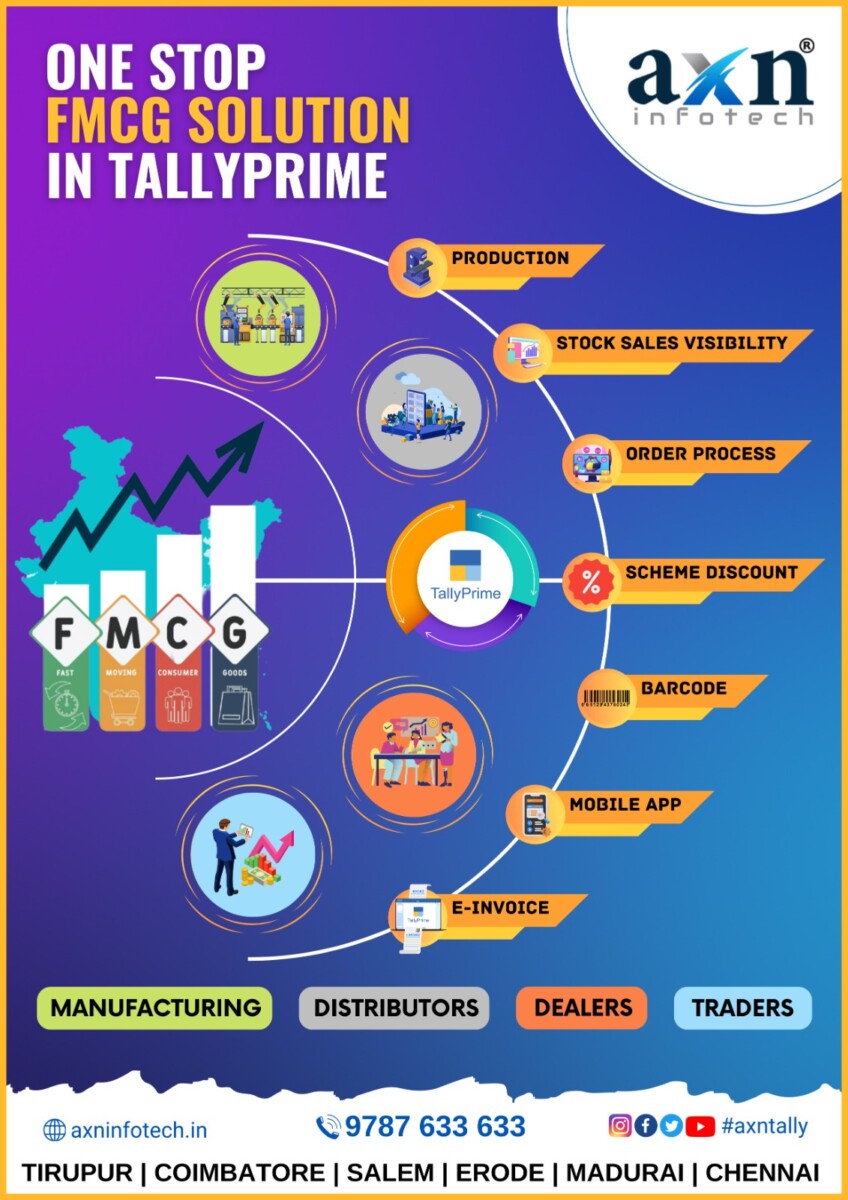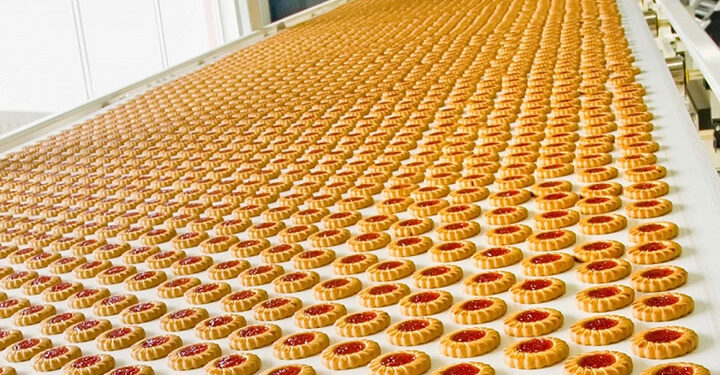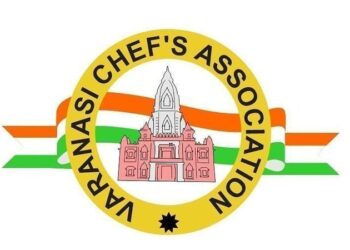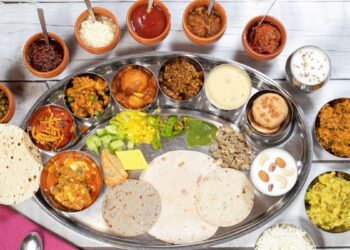THIS ARTICLE IS POWERED BY

-Ayshwaria Lakshmi (cbedit@imaws.org)
The growth of Food product manufacturing and processing rose on the backs of increased Urbanisation and convenience. According to Statista, Revenue in the Food market would amount to US$997.30bn in 2024. The market is expected to grow annually by 7.96% (CAGR 2024-2028). In global comparison, most revenue is generated in China (US$1,630bn in 2024).
But like any other industry, this industry has challenges ranging from regulatory hurdles to market dynamics. In this story, Kitchen Herald spoke to business owners to understand that while the market size increases, matters like infrastructure, skilled labour force, women in leadership positions and regulations for niche and newer products are still persisting challenges.
Setting up production unit
One of the biggest challenges in terms of financial cost and business is the setting up production units. To set up these units, the businesses have to put a huge upfront cost on the land and infrastructure.
 Divine food brings to the table products made from traditional superfood products like Turmeric (Curcuma longa), Moringa (Moringa oleifera), Millets, Honey and Skin Care. This brand’s biggest motto is to empower more agri-prenuers. It helps farmers and small business owners from the rural areas to set up production units. It then procurs a portion of product producers and markets them under the brand.
Divine food brings to the table products made from traditional superfood products like Turmeric (Curcuma longa), Moringa (Moringa oleifera), Millets, Honey and Skin Care. This brand’s biggest motto is to empower more agri-prenuers. It helps farmers and small business owners from the rural areas to set up production units. It then procurs a portion of product producers and markets them under the brand.
“For a small scale business, setting up business units and acquiring the infrastructure are costs that fall heavily on them and are dead costs where ROI are lower,” said Kiru Maikkapillai, Founder of The Divine Foods. “It is also important to note that the profit margins are also low in this business.”
He also added that for small scale business, the need for technology might not be as huge as the large companies but the cost of those technologies are still a burden to be borne.
Skilled labour
Skilled labour is a challenge for businesses across all industries. In the food industry, one that has the knowledge to make a parrotta can make it. While it is also a transferable skill, only with hours of practice can one become good at it.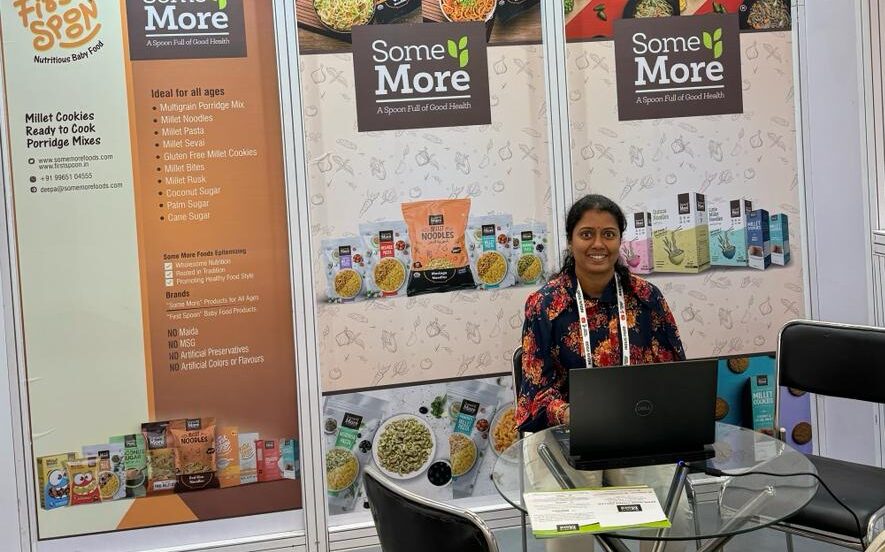
“We spend crores to set up our business units, but with no skilled labour, it goes to waste. As business owners, we have to also spend hours to find dedicated labour who would stay for more years and train them,” said Deepa Muthukumarasamy, Founder of Some More Foods.
Some More Foods offers ranges of products in noodles, cookies, health mixes and pasta made out of millets. The attrition rates are higher in this segment of business. Businesses are challenged with finding the right labour who would stay with them for years as well as retaining them. For this, Deepa says they constantly work on upskilling and training their employees. As business owners, they would have to make it possible for their employees to grow along with the company.
Women in leadership position
In a time when women in leadership positions are celebrated, hindrances to build a business without a male counterpart persists. Women are still being judged by different standards than their male counterparts. Jaggruthi Kumaradasan, a young entrepreneur, when she took over her father’s business faced immense challenges both internally and externally.
“Bhima’s Foods was a 10 year old company and was a small scale business. When I took over, the biggest challenge was that I was a girl and I was young, and labour generally do not have the habit of listening to a girl in authority,” She said. “ As a CEO of Padma Food Products – Bhima’s Foods, I have used male counterparts to communicate with our vendors.”
Bhima foods offers ready to cook products such as parotta, chapati, Dosa batter and snacks and savouries. While Jaggruthi has overcome these challenges internally, externally with vendors, she still finds it difficult. She recollected an incident when a personnel changed with one of her suppliers, she found it difficult to communicate.
Later, she had to get one of male employees to take over all the future communication with them. While she has navigated this challenge, she says that as a woman founder it might not be as easy as for the male. But it is not impossible, persistence and one’s attitude helped her overcome these challenges.
Building business in a niche market
The regulations in the food industry are strict and do not take into account newer products. There are various new products coming into the Indian markets. While the regulation for all these new businesses cannot be favourable, businesses had to spend time communicating with the authorities about their products.
Käse Cheese, an artisan cheese brand, was founded in 2016 by Anuradha Krishnamoorthy and Namrata Sundaresan. Kase has gained recognition for Indian cheese at a global level with a Silver award for Alpine Style Washed Rind Cheese at the World Cheese Awards held in Trondheim – Norway in 2023 and a Bronze award at the World Cheese Awards held at Wales in 2022, for a unique Lavender Fields Cheese.
But in their home ground, they had a difficult time to receive a licence from regulators. Manufacturing of cheese was a relatively new concept to the Indian food business market. India largely used to export cheese or processed cheese. Artisan cheese, cheese made using traditional methods, is a segment that is lesser known. India would have less than 50 businesses in this segment.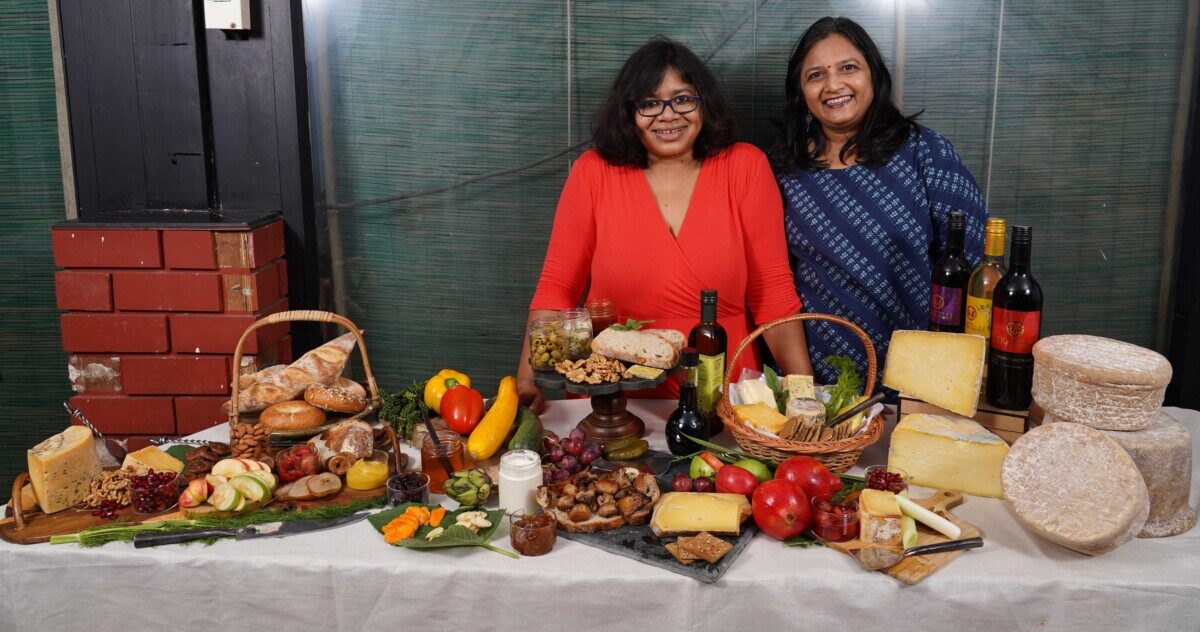
“One of the biggest challenges is that the moment you say cheese, you are understood or defined in the same category as processed cheese or industrial cheese. There is no clear categorization so people will immediately put you together in the same bracket. We spent a lot of time in the offices talking to people because we need our licences and things to be in place even to operate and do business,” shared Namrata.
Categorised under a huge the same category would add to more hindrances. As one of the regulatory requirements for the processed cheese to be stored at 4° celsius or below. But artisan cheese cannot be stored at the said temperature.
“We wanted to be known as a separate entity from the process cheese. We were constantly in touch with authorities. In matters like these, it has to come from top to down kind of thing because that is where all these policies are being set. It is a time-drawn process, but we are willing to make that effort to talk to people, especially at the policymaking level to make sure that people as consumers know what they are eating,” said Anuradha, the other founder of Kase Cheese.
How to tackle the financial aspects:
 J Priyadarshini, who owns Prinav Dairy and Agro Products in Coimbatore says one of the major challenges small manufacturers face in working is the working capital and funding. “We are one of the fast growing companies in the dairy segments with products like Paneer, Curd, Ghee etc. Our business models revolve around farmers and we need to have a different mindset and finanical terms as most of our payments happens only after 40 days. What would be a blessing would be a prominent OD facility from the banks. In general, getting loans or any form of funds from both private or public bank is a challenge for us.”, she says further adding that, to enhance the smooth working of the businesses, especially a time-constraint businesses like us.
J Priyadarshini, who owns Prinav Dairy and Agro Products in Coimbatore says one of the major challenges small manufacturers face in working is the working capital and funding. “We are one of the fast growing companies in the dairy segments with products like Paneer, Curd, Ghee etc. Our business models revolve around farmers and we need to have a different mindset and finanical terms as most of our payments happens only after 40 days. What would be a blessing would be a prominent OD facility from the banks. In general, getting loans or any form of funds from both private or public bank is a challenge for us.”, she says further adding that, to enhance the smooth working of the businesses, especially a time-constraint businesses like us.
Future of the market
According to Statista, in the Food market, volume is expected to amount to 716.00bn kg by 2028. The Food market is expected to show a volume growth of 4.7% in 2025. The average volume per person in the Food market is expected to amount to 429.20kg in 2024. In relation to total population figures, per person revenues of US$696.20 are generated in 2024.
THIS ARTICLE IS POWERED BY
